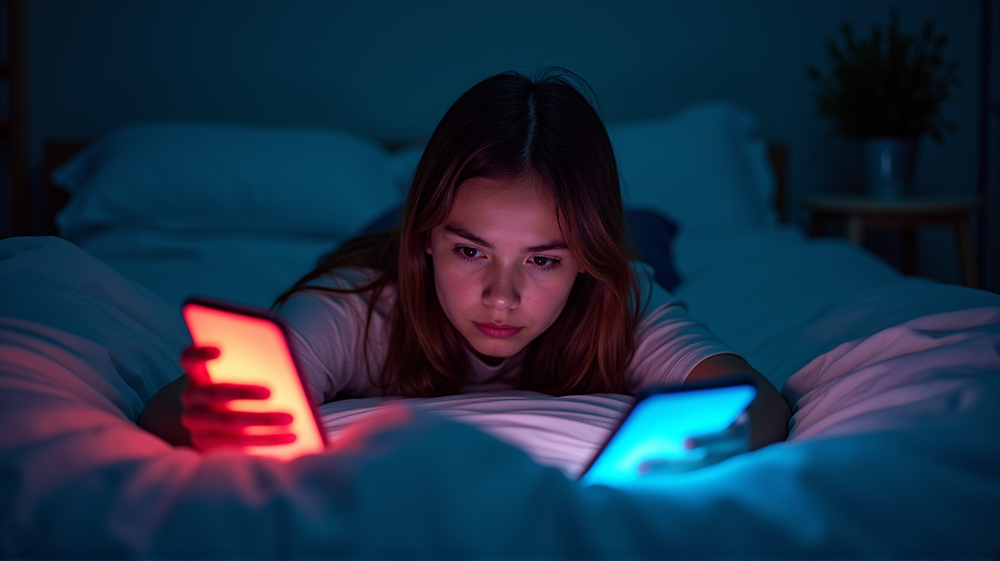Gen Z's Midnight Battle with Screens For 'Revenge Bedtime Procrastination'
In the shadowy hours of the night, a new phenomenon known as ‘revenge bedtime procrastination’ has taken hold, especially among Gen Z. In a relentless bid to reclaim personal time from their bustling days, the youngest generation finds themselves sacrificing precious sleep, often yielding to the allure of digital distractions.
Decoding ‘Revenge Bedtime Procrastination’
Considered a modern plight, ‘revenge bedtime procrastination’ refers to the delayed bedtimes when individuals purposefully stay awake despite feeling fatigued. This behavior has been noted to overwhelmingly affect Gen Z, primarily driven by a need for personal autonomy and a digital haven.
The Unseen Scrollers
Gen Z leads the march into the twilight zone, frequently setting the average bedtime at 12:30 a.m., later than any other age demographic. For this tech-savvy cohort, digital screens are both a comfort and a thief, with TikTok, YouTube, and Instagram consistently robbing them of sleep. According to Newsweek, these platforms employ endless scroll features that captivate users, drawing them into an addictive labyrinth far removed from the natural calls of sleep.
Sleep Sacrifice for Digital Engagement
The digital age offers endless entertainment and connectivity, but not without costs. Nearly half of Gen Z identified TikTok as their primary nocturnal nemesis, closely followed by YouTube and Instagram. As reported by Rosie Osmun at Amerisleep, the blue light emanating from screens impedes melatonin production, crucial for regulating sleep cycles.
The Toll of Burning the Midnight Oil
The consequences of this interrupted sleep cycle are stark. The lack of adequate rest takes a toll not only on mental health, increasing risks of anxiety and depression, but also compromises physical wellness. Burnout is a growing concern; nearly half of those who skimp on sleep report high fatigue levels, laying bare the fragile balance between satisfaction today and remorse tomorrow.
Industries on the Edge
Industries such as hospitality, healthcare, and government are particularly affected, as workers in these fields make drastic sacrifices for personal time, further compounding the problem. The pressure to gain back time can significantly impair job performance and health, emphasizing the need for reclaiming restful sleep instead.
Towards a Harmonious Balance
As society grapples with the implications of perpetual connectivity, the need for a more balanced interfacing with technology becomes critical. Moving beyond reclaiming just time to restructuring it for health presents an opportunity for societal shifts toward sustainable lifestyles. Among the noise and flashing screens, finding solace in sleep could be the key to both vitality and genuine independence.
In conclusion, while the temptation of scrolling into the night remains ever enticing, the real victory lies in reclaiming the restful nights needed to restore energy and mental solace. As we navigate this digital expanse, it’s perhaps time for bedtime to enact its own form of revenge—by taking back the night.




